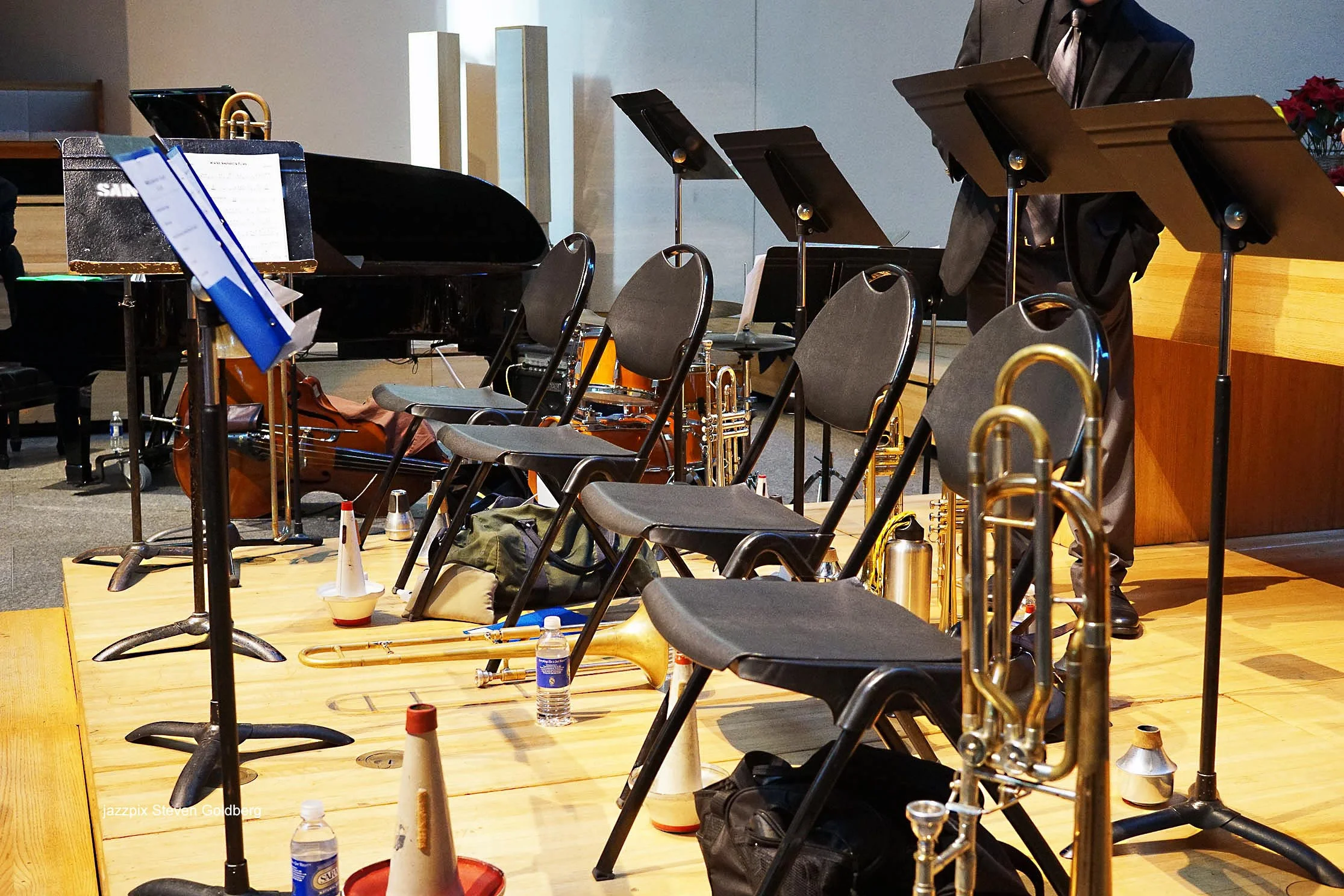All About Jazz - Album Review: The Chase - Dan Bilawsky
Publication Date: April 14, 2014
Author: Dan Bilawsky
The Chase is one heck of a wild ride. Trombonist David White has followed up his Jazz Orchestra's debut—Flashpoint (Mister Shepherd Records, 2011)—with an album that's short on material but rich in content. A scant thirty-four minutes of music can be found on this one, with all but one of the six tracks falling in the four-to-six minute range, but better to focus on what White does with the time than the time itself.
White's greatest achievement here surrounds his ability to create and manipulate momentum. Virtually every track plays on the idea of forward motion as a major design element. "Mister Shepherd's Misadventures" runs right out of the gate, swinging, punching, and dropping in on a backbeat for a bit before returning to swing; "And The People Could Fly" takes flight and takes shape over an insistent but controlled rhythmic figure; "The Sweetest Bite Of Cherry" toys with the balance between balladry and propulsion; "Persistence" builds over a repetitive rise-and-fall figure; and "The Shakedown" uses funk as a foundation, pushing forward with tight hits and compacted grooves. The album-ending "Blues For Sally Draper" is the only number that doesn't really rely on drive, but that's the point. That one succeeds with a cool-as-ice design.
Plenty of big band projects from lesser known outfits feature a marquee guest to try to stir up interest, but White doesn't go that route. The David White Jazz Orchestra doesn't need any help, for it's interesting all on its own. This band has forged a solid identity, with plenty of simpatico section players and lots of solo power shaping the sound. White, tenor saxophonist Sam Dillon, alto saxophonist Andrew Gould, trombonist Rick Parker and a handful of others all get to shine on these well-crafted tunes.
There's often a de-emphasis on rhythmic motion in new big band work, as many composer's today only focus on ever-expansive harmonies, often at the expense of movement. People seem to forget that pulse is what keeps all of us alive; it does the same for music, so it's nice to hear from a big band composer that understands this. -Dan Bilawsky



